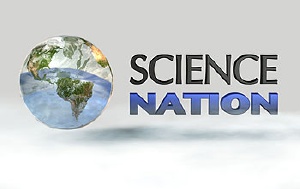Jun 1 2009
The National Science Foundation (NSF) today released the first in a series of video programs called Science Nation, which examine breakthroughs and the possibilities for new discoveries about our planet, our universe and ourselves. The video series is being created for NSF by former senior science producers at CNN, including Peter Dykstra and Kate Tobin. Each program features a two-minute and five-minute version.
 NSF's Science Nation video series will examine breakthroughs and the possibilities for new discoveries. Credit: National Science Foundation
NSF's Science Nation video series will examine breakthroughs and the possibilities for new discoveries. Credit: National Science Foundation
"We are pleased to be able to educate and engage the American public about the diverse range of NSF-funded cutting-edge research that is going on every day," said Jeff Nesbit, director of NSF's Office of Legislative and Public Affairs. "Each week, Science Nation will take a dynamic, entertaining look at the research, and the researchers, that will change our lives."
The first episode, released on June 1, focuses on what we can learn from organisms that can live and thrive in frozen deserts or steaming-hot volcanic vents. These "freak" organisms may offer clues about possible life away from Earth. Subsequent episodes will be released every Monday and will be featured on https://www.nsf.gov/. The videos can be downloaded from that site. Links to the videos can also be embedded on other sites.
Upcoming shows include:
- Tornadoes: research into perfecting how to anticipate tornadoes, and save lives in the process
- Artificial Retina: a totally-blind woman whose sight is partially restored through what is essentially a bionic eye
- Hydrogen Cars: advances in someday finding the "Holy Grail" of hydrogen-powered vehicles
- Cleaning up Rural China: coal-based cookstoves rule in rural China--an American grad student has potential solutions
- Greenland Ice Cores: research into ages-old ice cores from Greenland could preview what climate change may mean for us
In addition, the producers are developing programs about endangered Emperor penguins, biofuels and atom-thin nanofibers.